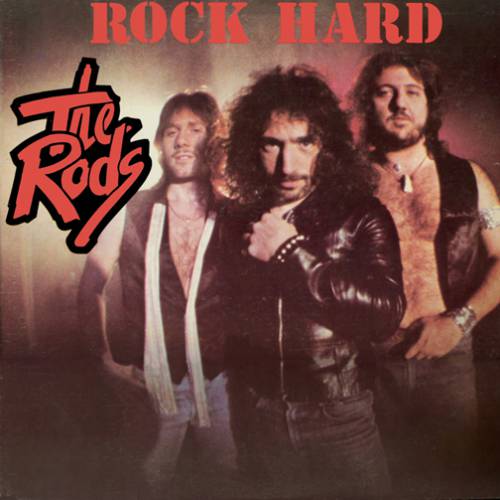Connecticut is best understood as a state with two universities, a zombie factory town reanimated by necromantic insurance offices, and long stretches of farmland and suburbs. That’s not the usual recipe for heavy metal greatness, but sometimes profound strangeitude hides behind the closed doors of monotony.
Legend’s “From the Fjords” is a very ambitious album. It echoes bits of Rush and UFO, as well as the requisite Black Sabbath and Thin Lizzy. The semi-prog compositions require a fair bit of multi-tracking on Kevin Nugent’s guitar, but the rhythm section is equally important to the band’s sound; far more than commonly heard on a release of this sort. Nugent solos sparingly, choosing instead to make every riff and melody count. Meanwhile, basslines perceptibly groove, drum patterns shift with frightening regularity, and both are routinely punctuated by a bevy of inventive fills. The album occasionally dips into softer territory with bits of clean-tone funkiness and synth melody, but even these respites retain a dramatic tension that promises future explosions. First the fun, then the fury.
Legend were a one-and-done band, which was quite common in metal’s early days. Bassist Fred Meillo estimates that roughly 500 copies were pressed in the original vinyl format, and they now fetch extortionate prices on auction websites.
But that was 1979, and what a difference a year makes. Several months later, and operating 250 miles north and west of New Haven, a band of admirable ability and dubious inspiration were about to make forgotten history.
But that was 1979, and what a difference a year makes. Several months later, and operating 250 miles north and west of New Haven, a band of admirable ability and dubious inspiration were about to make forgotten history.
The Rods’ debut “Rock Hard” is somewhat in the vein of Riot, but slightly noisier, messier, and stripped down to a power trio. The riffs and lyrics have the blues sleaze of AC/DC, but the rhythm section displays the tenacity and quirky personality of Canadian hard rockers Max Webster. The best immediate comparison might be Def Leppard’s “High n’ Dry,” albeit with a mental capacity pounded even further into oblivion. It’s a slightly unexpected and endearing combination, and The Rods certainly were able to impress someone, because their debut attracted the attention of Arista Records, garnering a pair of major label releases in 1981 and ‘82.
Much of the album betrays a small town central New York origin of modest working class ambitions. However, the forcefulness of the band’s conviction to that goal, and their ability to write slimy riffs that move your ass mitigate this problem. Still, for all its charming naivete and impulsive aggression, “Rock Hard” is an album that belongs to the previous decade. American metal bands were still struggling to extricate themselves from the trappings of long hair groovin’ ‘70s dad rock.
Unfair as such views may be, they are important reasons why Cirith Ungol were ignored during the ‘80s. We’re talking about a super-low budget album that, in many ways, has one foot stuck in the proto-metal era, and one in the lake of fire (heh). It’s very endearing and enjoyable and even fun, but it rarely makes your jaw drop from the audacity of it all. Bold grandeur would come years later on Cirith Ungol’s second album, but metal couldn’t wait so long. British bands were now plowing ahead at a mile a minute, and the USA needed to play catch-up. That requires us to go back to the beginning, and perhaps even earlier.



